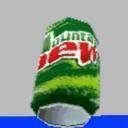-
Posts
1,689 -
Joined
-
Last visited
Awards
This user doesn't have any awards
Profile Information
-
Gender
Male
-
Location
The Lonely Mountain
-
Member title
Thorin II Oakenshield
Recent Profile Visitors
2,396 profile views
CJPowell27's Achievements
-
HDMI 2.0
-
The RX550/ laptop documentation states that the laptop is capable of 4k 60Hz. Would it be a tv issue from there?
-
hey guys, I've got an HP Elitebook G6 that is outputting 1080p 60Hz video to a tv perfectly fine, but refuses to output 4k at any refresh rate. I've tried updating both the intel driver and the Radeon drivers but no luck. Is anyone aware of any other potential causes? The TV itself supports 4k 60Hz and I have an HDMI 2.0 cable.
-
I looks like you are only trying to rotate the minutes, is that correct? Often times transform-origin has issues with being in a certain CSS style card. It is also good form to do something like -moz-transform-origin: 26px 3px; -ms-transform-origin: 26px 3px; -o-transform-origin: 26px 3px; -webkit-transform-origin: 26px 3px; transform-origin: 26px 3px; to allow for more browser compatibility.
-
that makes so much sense, basically all the stuff in the quotes filters it so that it would only return Grace Johnson (because given criteria) as true then returns that to the outer query right? It worked
-
Hey guys so I was given the below table layout as a practice problem. My professor wants me to use a nested query with the exists predicate to print the customer name and amount they paid, but only for the customer that paid using credit or check AND bought milk or coke. Logically I am aware that the command should be printing out Grace Johnson for the name and 11.75 as the amount. I also understand that the exists predicate should only be used to return a true or false value, so where would the correct place to use that keyword? I got it working in another way without the exists keyword using select * from customer where customerID in (select customerID from orders where ordertype='Credit' and orderID in (select orderID from items where items='Cookies' or items='Coke')); Table Layout:
-

Which programming language should i start with as a 15 year old?
CJPowell27 replied to memz's topic in Programming
I found my professors archive for her 3 C++ classes. I'll send you a link in your DMs, start with 162 then 163, then 202 and look at all the lecture materials she's amassed . -
Good lord I was making that far too difficult for myself, I must be burnt out. Thank you so much, it worked!
-

Which programming language should i start with as a 15 year old?
CJPowell27 replied to memz's topic in Programming
The second language I looked at after C++ was assembly so I know that feel, pain. only pain. If you do decide to go with either Python or C++ thenewboston on youtube puts complex concepts into simple terms that even a brand new programmer can understand. If you go with C++ let me know and I can create a google doc folder with all of my lectures from one of the most brilliant programmers/professors I've ever seen and learned from. -
Interesting, so it basically doesn't concatenate properly by doing something like that? If what you are saying is the case, how do you recommend I get it to function as I intended?
-
Correct. At this point I'm not sure if it is an issue with the read statement or the long select statement with a million different quotes. I tried doing a bit of "troubleshooting" by switching psql -d "$dbname" --command "select * from cpu c inner join motherboard m on c.socket=m.socket where m.modelName="\'$var2\'" and c.modelname="\'$var1\'";"; into echo "select * from cpu c inner join motherboard m on c.socket=m.socket where m.modelName="\'$var2\'" and c.modelname="\'$var1\'";"; and it printed the command perfectly with the single quotes in the correct spot with the proper values being filled in for the variables. That's what is throwing me completely off here
-

Which programming language should i start with as a 15 year old?
CJPowell27 replied to memz's topic in Programming
There's always going to be programmers to compete with. To me it is important to recognize the fact that in most cases you'll likely be doing upkeep on legacy code. Sure python is a huge language being used really often nowadays, but it doesn't really translate to many languages easily as other languages can. Python is in a league of its own with a lot of its concepts so in starting with that language you may find it difficult to apply basic programming principles to other languages. -

Which programming language should i start with as a 15 year old?
CJPowell27 replied to memz's topic in Programming
I started off with C++ programming and honestly that seems like the best place to start from my extremely biased point of view. C++ sets the standard for a lot of programming language basics without being far too complex. It also has one of the best textbooks C++ Primer Plus which is by far the best textbook with regards to programming I've ever read. -
Hey guys I'm trying some PSQL integration with bash but I ran into an issue with variables containing spaces between words. I am basically getting two inputs of model names for both CPUs and Motherboards, then checking to see if those model names are the same socket in the database. read -p "Enter CPU model name: " var1; read -p "Enter motherboard name: " var2; psql -d "$dbname" --command "select * from cpu c inner join motherboard m on c.socket=m.socket where m.modelName="\'$var2\'" and c.modelname="\'$var1\'";"; But if I enter something with spaces such as: Ryzen 5 3600 the spaces will overflow into other variables in the psql query line. Below is a screenshot of the error. If I enter the same thing (Ryzen 5 3600) but with dashes instead of spaces, this does not happen. Is there something I am missing with BASH user input that I would need to clear an input buffer or something? Thanks in advance for any tips
-
MODS go ahead and delete this I did some random stuff and it worked! update tableName set initials=(select concat(substring(first_name,1,1),substring(last_name,1,1))); it's ugly but it works

















